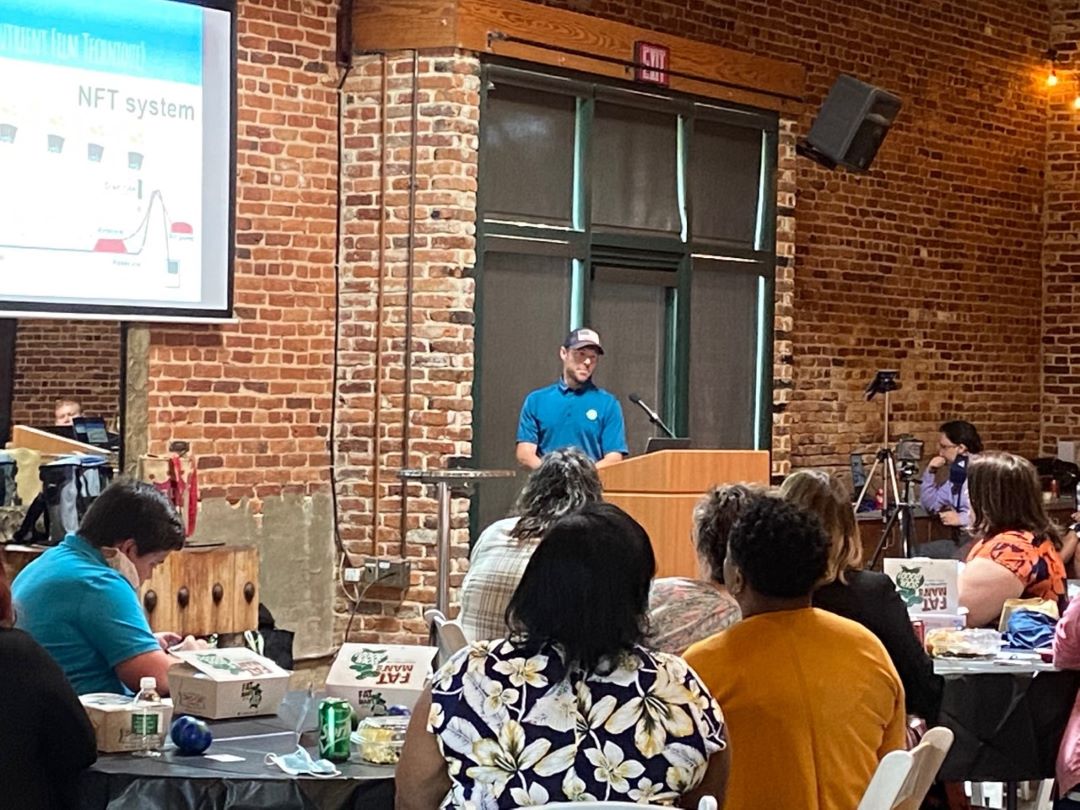“Farm to table” is a phrase that’s been thrown around a lot in recent years.
On April 20, three speakers explained what those words mean to the physical and economic health of Augustans at the Augusta Metro Chamber of Commerce’s Women in Business luncheon at Enterprise Mill.
Kayla Kranenberg, the executive director of the American Heart Association, laid out some of the physical benefits of eating a heart-healthy diet and pointed out some of the problems many area residents have in obtaining healthy foods.
MORE: Groundbreaking Held For the HUB for Community Innovation
Heart disease is the leading cause of death in the United States, she said. While people can’t control the genetic reasons for heart disease, they can control their diet and exercise habits, unless there are barriers to accessing healthy foods such as food deserts and lack of transportation to healthy foods.
“Seventeen percent of people living in Richmond County have food insecurity,” said Kranenberg.
To help people in area food deserts have access to local foods, the heart association, Augusta Locally Grown and Augusta-Richmond County Housing and Community Development opened a farmers’ market in the Laney-Walker neighborhood.
[adrotate banner=”22″]
Augusta Locally Grown has operated a veggie market for several years, in addition to its online ordering service which connects local growers with consumers.
Rebecca van Loenen touted the programs of Augusta Locally Grown and how they impact local growers.
She said 74% of the growers selling through Augusta Locally Grown are women.
“We have one of the most diverse online markets in the nation,” she said.
Last year, during the pandemic, the organization saw $300,000 in online sales.
Eighty percent of that went directly to the farmers. At the in-person markets, 100% of proceeds go directly to the growers, she said. When people shop at chain grocery stores, only about 12% of the price goes to the farmer.
Van Loenen also announced the HUB for Community Innovation in the Harrisburg community. Ground was broken on the center earlier this month. Augusta Locally Grown is one of four organizations which will be part of it. The Hub will provide an interior space for the markets when completed.
[adrotate banner=”19″]
“We’ll have a year-round market and a 2,000 square foot teaching kitchen,” she said.
Havird Ursy rounded out the speakers at the luncheon by talking about putting the farm to table concept to practice at his restaurants, which include The Southern Salad.
Well-known fast-food chains may use ingredients like tomatoes on their hamburgers, but those pieces of produce have been picked green, gassed to make them ripen and traveled hundreds– if not thousands– of miles to the restaurants. Many have been genetically modified to make them the size of a hamburger bun and in the process, they’ve been depleted of nutrients as well as flavor, he said.
MORE: Local Growers Provide Plenty of Options for Farm to Fork Experiences
He and his father, Brad Usry, started talking about the concept in 2017. One night after a few beers, Havird Usry told his dad they needed their own greenhouse.
The restaurant wasn’t even opened, but they had a greenhouse by May 2018. The 1,500 square foot greenhouse can produce 900 heads of lettuce in a week.
Today, The Southern Salad on Broad Street provides those fresh vegetables to consumers who are on the go.
Charmain Z. Brackett is the Features Editor for The Augusta Press. Reach her at charmain@theaugustapress.com.
[adrotate banner=”41″]












